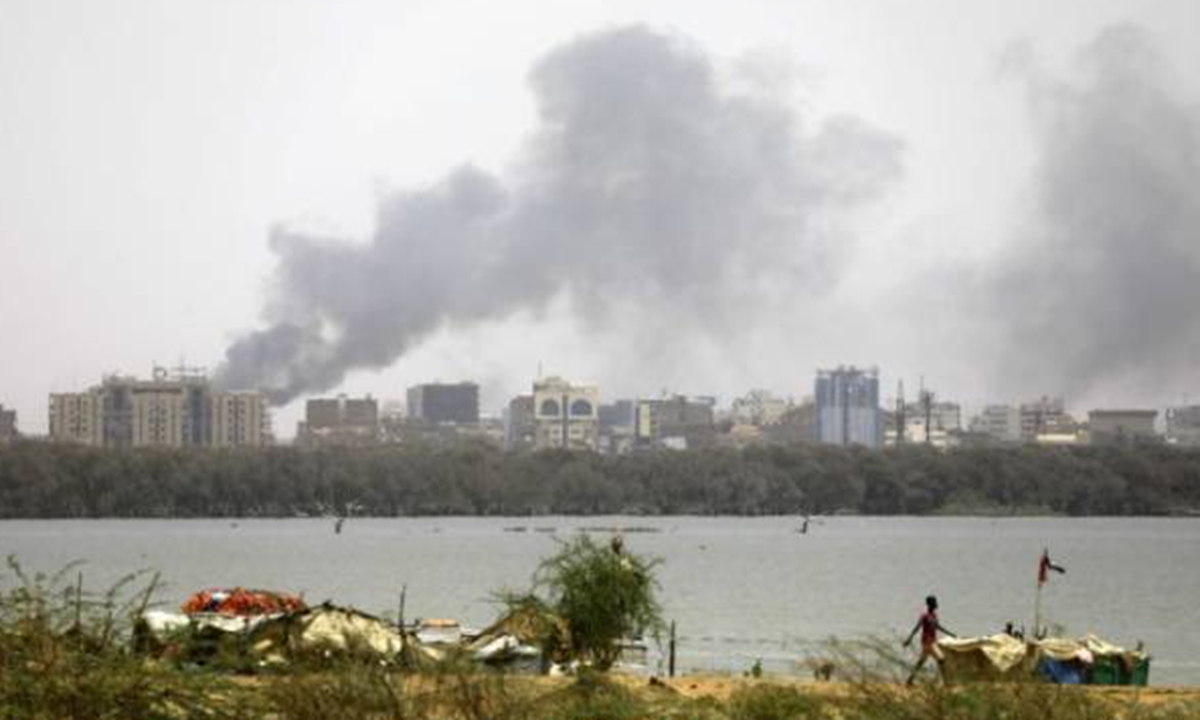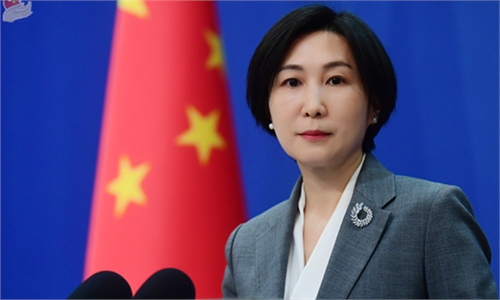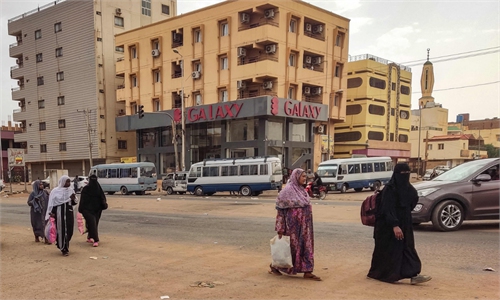
An armed conflict breaks out in the capital Khartoum and other areas in Sudan on April 15, 2023. Photo: Xinhua News Agency
Chinese companies operating in Sudan told the Global Times that they are evacuating staff to neighboring countries as the local conflict continues. The firms said that they have contingency plans in place to cope with the situation.
While some foreign media outlets hyped the claim that the conflict in Sudan adds to "growing hurdles" for the Belt and Road Initiative (BRI), Chinese companies and experts said the impact on BRI cooperation will be temporary and limited.
As the tensions sees no sign of easing, Chinese companies, which have heavily invested in the country's development for many years, are evacuating their employees in response to the call of the Chinese Embassy in Sudan, staffers at the companies told the Global Times.
For example, Nantong Construction Group Co, a state-owned construction company based in East China's Jiangsu Province, has invested in African countries including Sudan for more than 30 years.
A manager surnamed Zhang told the Global Times on Tuesday that all nine Chinese employees in the capital had evacuated to Port Sudan on Monday under the Chinese Embassy's arrangement. They are heading to neighboring countries such as Egypt.
Mao Ning, a spokesperson of China's Foreign Ministry, said on Tuesday that the current security situation in Sudan remains complicated and serious, and the Chinese government is highly concerned about the safety of more than 1,000 Chinese citizens there, noting the ministry is working around the clock to assist in their safe transfer and evacuation.
While there were fears about possible impact of the conflict, companies have played down concerns associated with their operations and investment.
"The situation will have a very limited impact on our projects since the only remaining project is a housing project, which has been completed," Zhang said, adding the company's projects are insured.
Nantong is involved in a wide range of businesses including hospitality services such as hotels, mainly in the capital Khartoum.
Employees will return after the situation stabilizes, the manager said.
Shanghai Pharmaceuticals, which together with Sudan's National Medical Supplies Fund has established a production line in an industrial zone in Khartoum, sees no particular impact so far.
China and Sudan have maintained close economic and trade cooperation in recent years. As one of the earliest countries to join the BRI, there is no shortage of Chinese-developed projects in Sudan.
A report from the Chinese Ministry of Commerce in January 2022 showed that Chinese firms were heavily involved in infrastructure projects in Sudan, accounting for more than 50 percent of the local contract market.
At the end of 2020, Chinese companies' cumulative contract value exceeded $30 billion, with $20 billion worth of contrasts already completed, the report showed.
Large Chinese companies such as China National Petroleum Co, China Three Gorges Co and China International Water & Electric Co all have projects in the country.
Meanwhile, an article by Zhang Xianghua, Charge d' Affaires of the Chinese Embassy in Sudan, in March said that according to some estimates, China had provided about 6 billion yuan ($867 million) in free aid to Sudan and built more than 100 projects covering infrastructure, health and education.
Song Wei, a professor at the School of International Relations and Diplomacy, Beijing Foreign Studies University, told the Global Times on Tuesday that there could be some impact on Sudan's investment and trade, including from China, if the situation continues.
The Sudan conflict should remind investors of the need to have an early warning mechanism and obtain appropriate insurance coverage, said Song.
However, she said that the overall impact of the conflict on investment, including BRI investment, would be temporary, and the joint construction of the BRI projects will go on.
"If a country wants to develop, it still needs investment in infrastructure to inject momentum for growth and improve people's livelihoods," Song said.


